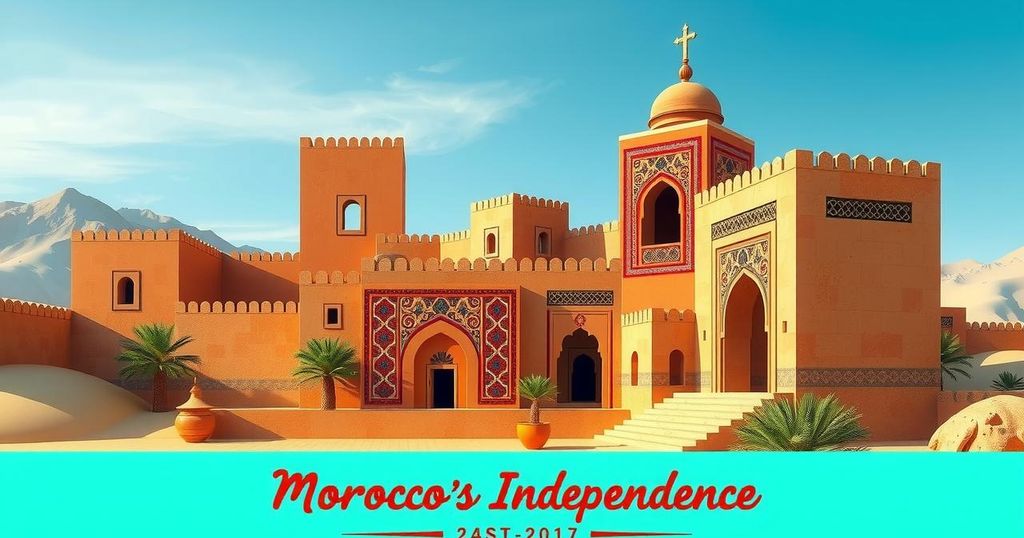On March 10, 2025, Moroccans commemorate the 66th anniversary of King Mohammed V’s passing, reflecting on his pivotal role in the nation’s independence. His leadership during the French protectorate era and the successful movement toward sovereignty is highlighted, marking the significant collaboration between the monarchy and national movement in shaping modern Morocco.
On March 10, 2025, Moroccans commemorated the 66th anniversary of King Mohammed V’s passing. This significant date, falling on the 10th of Ramadan 1446, honors the late monarch’s pivotal role in Morocco’s independence struggle, reflecting on the profound legacy he left behind after his death on February 26, 1961, just four years post-independence.
King Mohammed V was born on August 10, 1909, in Fez and became king in 1927. His reign was marked by critical historical events, particularly during the French protectorate period initiated by the 1912 Treaty of Fez. A key moment in the independence movement occurred on January 11, 1944, when he presented the Independence Manifesto, symbolizing the alliance between the monarchy, the national movement, and the citizens.
The momentum for independence increased following his landmark speech in Tangier on April 10, 1947. Here, he formally articulated Morocco’s aspirations for sovereignty. At the same time, political alliances formed during this era, such as Thami El Glaoui’s collaboration with French General Alphonse Juin, ultimately failed in efforts to depose the Sultan.
Following the royal family’s forced exile in August 1953, first to Corsica and later Madagascar, authorities aimed to diminish the independence movement. However, this action instead incited widespread rebellion and armed resistance against colonial rule. King Mohammed V returned triumphantly on November 16, 1955, leading to Morocco’s independence declaration in 1956 and his proclamation as King in August 1957.
During World War II, Mohammed V exemplified strategic leadership, balancing relations with France while safeguarding his people’s rights. He notably opposed anti-Jewish legislation from the Vichy government in Morocco and participated in both Anfa and Casablanca conferences, engaging in critical discussions with President Roosevelt regarding Morocco’s future autonomy. He also declined a 1943 proposal for a divided protectorate comprising the US, UK, France, and Spain, remaining steadfast towards total independence.
Post-independence, Mohammed V concentrated on establishing a modern state founded on democratic ideals. His death in 1961 marked the conclusion of a transformative era, with his son, Hassan II, succeeding him. Today’s commemorations reflect a pivotal moment in Morocco’s journey from a protectorate to a sovereign nation, underscoring the essential collaboration between the monarchy and the national movement in achieving independence.
The 66th anniversary of King Mohammed V’s passing serves as a significant reflection on Morocco’s journey towards independence and the legacy of a monarch who played a crucial role in its liberation. His strategic leadership, particularly during moments of colonial adversity, and dedication to unifying the nation, remain influential in Morocco’s modern identity. The commemorative observances further emphasize the enduring partnership between the monarchy and the national movement in attaining sovereignty and establishing democratic principles in the country.
Original Source: www.moroccoworldnews.com




